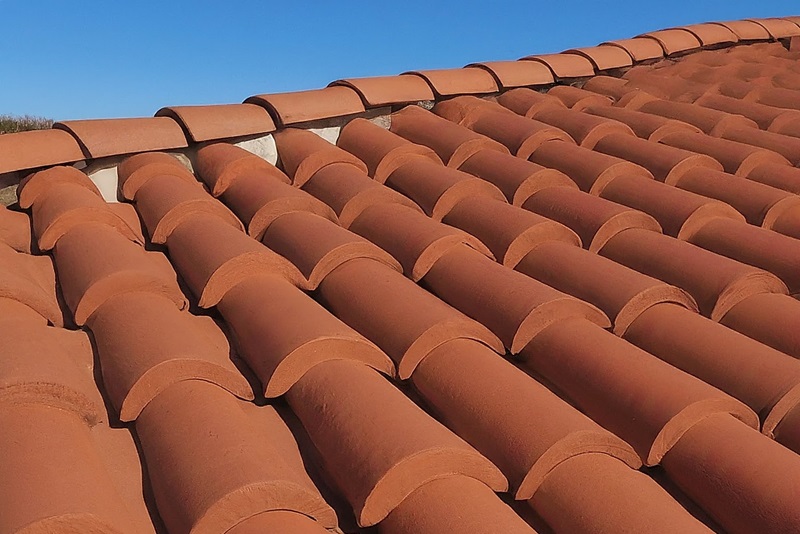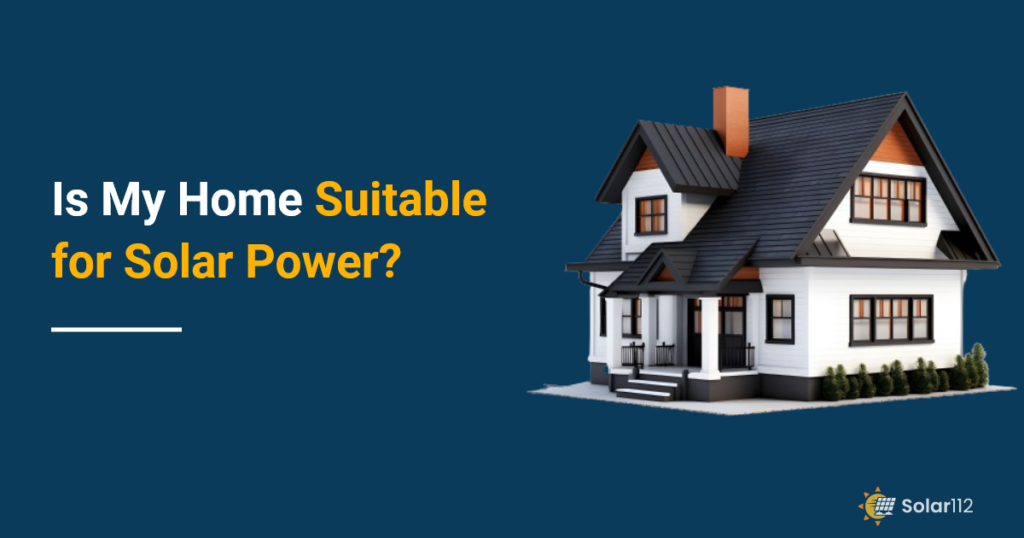Solar has great potential for saving the earth and also hefty power bills for homeowners. However, not every home is an ideal candidate for installing panels. If you are juggling the same question, “Is my home suitable for solar power or not?,
then, my dear friend, you have landed at the right place.
In this blog, we will share the optimal conditions for installing solar power residential systems and help you make an informed decision.
So, without further ado, let’s get started!
Home Solar Requirements: Criteria for a Good Fit
While considering going solar, there are a couple of questions that every homeowner faces. However, the below-listed criteria will help you be aware of the ideal home solar requirements. And so will the puzzle of, Is my house good for solar?
Let’s dive into them.
How much is your home power consumption?
The very first step in determining whether your home is an ideal fit for solar is to ask yourself, “How much electricity (kWh) is required for my house?” Or, in simple words, how much is your average monthly energy bill?
This basic yet significant question will help you decide whether to take the first step. Thinking about it?
This is because the local electricity rates in the U.S. vary hugely as you move from southern states to central and northern America. For instance, the average local electricity rate in Hawaii is nearly 43 cents per kwh, whereas in Utah, it is 11.22 cents per kwh, less than even one-third of that.
And with the lower electricity rates and the lesser power consumption, your home might not even require going solar. A general rule of thumb states that a household with an average monthly bill of $75 or more should opt for solar. This way, they will be able to waive off their power bills with the solar energy produced by the PV system, which will save them thousands of dollars in the long run.
How much sunlight does your roof receive?
Of course, if you really want to save more with solar panels, you need to ensure that your roof receives ample sunlight. For that, your panels need to be either south-east-facing or south-west-facing. The reason is pretty simple. The sun rises in the east and sets in the west; thus, the maximum daylight falls in the southward direction. Hence, ensuring maximum power production efficiency. This will be pertinent throughout the year.
To find out whether your home is good for solar, you can use Google Project Sunroof. It is a solar panel suitability checker tool. You can further book an appointment with one of their solar representatives. They will visit your home and inspect the site and other parameters thoroughly. This includes your roof orientation, roof angle, tree shading, and roof repair, if any, to ensure that your roof receives sufficient light to meet your home’s needs.
Furthermore, modern solar panels come with in-built micro-inverters, in which one panel is not producing energy because of shading, while the side panels that are receiving the light will keep generating electricity. Sunpower’s Equinox solar solutions are one such example.
Is there any tree shading?

Tree shading on your property plays a substantial role in deciding whether your home is a good fit for solar. So, before saying yes to clean energy, you must know how shading affects the solar panels.
The studies show that homeowners could lose 40% of their power production due to shading. This is because whenever there is shadow casting over a panel, either due to trees, dirt, debris, or any other reason, the panel’s surface is less exposed to sunlight. Hence, it results in lower electricity generation.
So, if you live in a dense forest area, you might want to reconsider your decision.
What is your local climate?
If you are wondering if solar works on cloudy days, then the answer is yes. From soggy regions like Louisiana to searing states like California, solar panels are designed to work in all kinds of climates.
Sure, the power production rates would vary with the weather and the types of solar panels installed. The high-efficiency panels will convert more sunlight even on less sunny days as compared to the least sunny ones. However, to know the exact amount of power production that can be possible on your property, always ask for a solar expert.
Furthermore, you sign up for net metering programs or invest in solar batteries. Both of these will help you store the excess energy on sunny days and utilize it on gloomy days. Thus, it will lower your dependency on the climate and help you go solar.
What kind of roof is it made of?
The next step in determining whether your home is a good candidate for solar is to know which roof is best for solar panels. This might sound silly, but it is a very crucial aspect.
Many strong and durable roofing materials, such as asphalt shingle, metal, tile, tar, and gravel, provide optimal roof conditions for installing solar panels.
Roofing materials like wood shake or clay with mortar can also support solar panels. However, in this case, you would need to hire a solar panel installation expert who has previous experience installing systems on such roofing materials.
What is the condition of your roof?

While your roof condition might not be the direct influencing factor in whether your home is suitable for solar, it is still a crucial factor prior to installation. It is always wise to have your roof inspected thoroughly.
The reason we are saying this is because the average lifespan of a roof is 25 to 50 years. On the other hand, the average lifespan of solar panels with the company’s inclusive warranty is 25 to 30 years.
So, if your roof is brand new or in good working condition, then you don’t need to worry about the additional roofing service expenses.
However, if it’s aged (say, around 40 years or more), then you would need to get the necessary repairing work done prior to the system being set up. This would save you the double cost of the roof replacement and re-installing panels on your property in the future.
Does your roof have enough space?
Your roof size is another contributing factor towards figuring out if your home is good for solar. To know whether or not you have adequate roof space, follow the given steps and calculate yourself:
- An average solar panel size is 5 feet by 3 feet, i.e., around 15 square feet, with an average production rate of 265 watts a day in direct sun exposure.
- Divide your roof area by 15, and then multiply by 265*30. This will give you the maximum number of solar panels that can be installed on your roof. Or, should I say, the amount of maximum electricity that can be produced?
- Now check the power bill and see how much your monthly electricity consumption is. Compare it with step 2 and see if your requirement fits within that number.
If yes, then you are eligible for this step. If not, you can go for the top-notch solar panels that yield the highest production and are ideal for small-roof areas.
And if even that is not a feasible option for you, then take consultation from a solar contractor. They could help you with alternative options, such as community solar projects.
How long are you planning to stay at your property?
This is the last yet significant deciding factor of whether your home is ideal for solar. The reason we are saying this is because solar panels have an average payback period of 5 to 15 years. However, this can vary based on the states across the nation and the quality of the panels.
So, if you are planning to sell your home in the near future, then it might not be a good idea. Because even though it would increase your home value, you won’t get the expected ROI from a PV system. But if you are here in the long run, then good news: you can go solar and start saving from day one.
Final Words
Solar panels are a great financial investment and do increase your home’s value. However, to ensure that your home is a good fit for solar and that you will be able to reap the maximum benefits from it, it is important to assess the aforementioned steps.
Once you feel confident in that, it’s time to contact a solar panel installation company. They would collect all the information, assess all the external parameters, and come up with a clear roadmap. This includes the average size of the residential solar system that you will need to install, the amount of electricity you can generate, savings on your power bill, and more.
Additionally, always look for the solar incentive and rebate programs available in your region. This will help you lower your solar project costs and give you financial aid.

